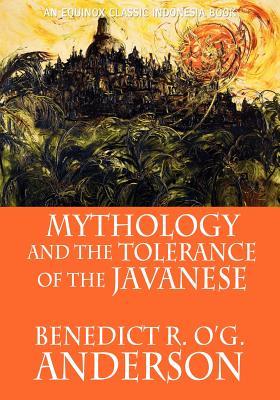All of those who are interested in contemporary Indonesian society, its organization and social and political articulation, sooner or later come to realize that in order to achieve any real depth of understanding for these phenomena it is first necessary to appreciate the enduring and frequently manifest residuum of traditional, pre-Western culture in Indonesia. Certainly this is true with respect to Java, whose culture has of course had an impact far beyond the shores of that island. In many cases these legacies of traditional culture help to explain current phenomena; in addition they make much more understandable the Javanese approach to religion-not only to Islam but also to Hinduism and Buddhism, which were introduced to the island earlier. For they have conditioned the way in which all outside ideas, Western and non-Western, have been received, and they help to account for the particular patterns of synthesis which are woven into the Javanese milieu.
Most striking is the way in which persisting elements of old Javanese culture affect contemporary values. An ability to accommodate to and tolerate conflicting norms and ideas, the capacity to entertain in coexistence ideas and values that would seem incompatible in many Western settings, an unusual capacity for sympathetic toleration in social behavior-these are all attributes of contemporary Javanese society deriving from old Javanese culture. For the outsider, such elements are probably most easily approached and understood through the traditional artistic medium of the wayang - the Javanese shadowplays based upon adaptations and developments of major themes and episodes in the Ramayana and the Mahabharata. These wayang plays, performed with flat leather puppets which throw their sharply etched shadows against a screen which is viewed from the other side, are as important a part of contemporary Javanese culture as they were of the old.
To discern this relationship between the wayang plays and Javanese society, to achieve an insight into the values which have been conveyed by wayang over the centuries, and then to perceive these patterns of social conduct and morality in a dynamic phase of interaction and adjustment with the new values and social concepts born in Indonesia of the Japanese occupation, the Revolution, and the rapid change of a post-revolutionary society, is an accomplishment few non-Indonesians would be capable of. Nor, indeed, would it be possible for most Indonesians, for their involvement in the culture and the society is so close that they miss the perspective necessary to appraise and describe these phenomena to an outside audience.
Mr. Benedict Anderson's study of the wayang and its sociological and psychological significance is, I believe, a real contribution to our understanding of Javanese culture and values. A political scientist by training (he has recently returned from Indonesia after three years of research there, primarily on the Revolutionary period), he has long been interested in Javanese art, drama, and music and has achieved unusually deep insights into these aspects of the Javanese civilization. Mr. Anderson wishes to emphasize that this study is exploratory in nature and that the conclusions he reaches are tentative. He would welcome comments and criticism on the material he is presenting. - George McT. Kahin, August 24, 1965
